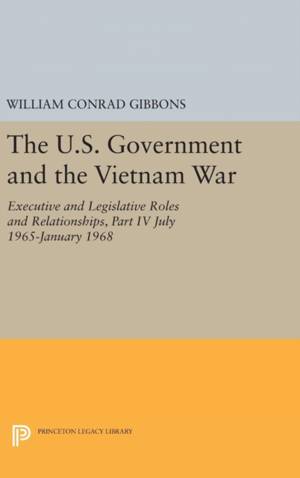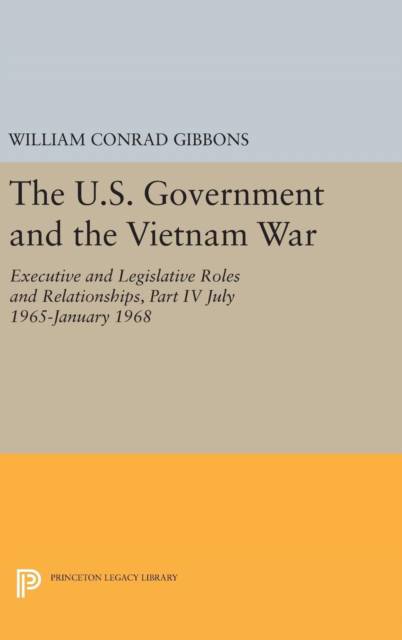
Nos liseuses Vivlio rencontrent actuellement des problèmes de synchronisation. Nous faisons tout notre possible pour résoudre ce problème le plus rapidement possible. Toutes nos excuses pour la gêne occasionnée !
- Retrait gratuit dans votre magasin Club
- 7.000.000 titres dans notre catalogue
- Payer en toute sécurité
- Toujours un magasin près de chez vous
Nos liseuses Vivlio rencontrent actuellement des problèmes de synchronisation. Nous faisons tout notre possible pour résoudre ce problème le plus rapidement possible. Toutes nos excuses pour la gêne occasionnée !
- Retrait gratuit dans votre magasin Club
- 7.000.0000 titres dans notre catalogue
- Payer en toute sécurité
- Toujours un magasin près de chez vous
The U.S. Government and the Vietnam War
Executive and Legislative Roles and Relationships, Part IV July 1965-January 1968
William Conrad Gibbons
670,45 €
+ 1340 points
Description
This fourth volume of a five-part policy history of the U.S. government and the Vietnam War covers the core period of U.S. involvement, from July 1965, when the decision was made to send large-scale U.S. forces, to the beginning of 1968, just before the Tet offensive and the decision to seek a negotiated settlement. Using a wide variety of archival sources and interviews, the book examines in detail the decisions of the president, relations between the president and Congress, and the growth of public and congressional opposition to the war. Differences between U.S. military leaders on how the war should be fought are also included, as well as military planning and operations.
Among many other important subjects, the financial effects of the war and of raising taxes are considered, as well as the impact of a tax increase on congressional and public support for the war. Another major interest is the effort by Congress to influence the conduct of the war and to place various controls on U.S. goals and operations. The emphasis throughout this richly textured narrative is on providing a better understanding of the choices facing the United States and the way in which U.S. policymakers tried to find an effective politico-military strategy, while also probing for a diplomatic settlement. Originally published in 1995. The Princeton Legacy Library uses the latest print-on-demand technology to again make available previously out-of-print books from the distinguished backlist of Princeton University Press. These editions preserve the original texts of these important books while presenting them in durable paperback and hardcover editions. The goal of the Princeton Legacy Library is to vastly increase access to the rich scholarly heritage found in the thousands of books published by Princeton University Press since its founding in 1905.Spécifications
Parties prenantes
- Auteur(s) :
- Editeur:
Contenu
- Nombre de pages :
- 986
- Langue:
- Anglais
- Collection :
- Tome:
- n° 4370
Caractéristiques
- EAN:
- 9780691634081
- Date de parution :
- 19-04-16
- Format:
- Livre relié
- Format numérique:
- Genaaid
- Dimensions :
- 156 mm x 234 mm
- Poids :
- 1542 g







